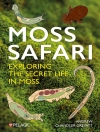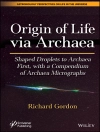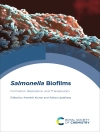This book compiles the latest information in the field of antibacterial discovery, especially with regard to the looming threat of multi-drug resistance. The respective chapters highlight the discovery of new antibacterial and anti-infective compounds derived from microbes, plants, and other natural sources. The potential applications of nanotechnology to the fields of antibacterial discovery and drug delivery are also discussed, and one section of the book is dedicated to the use of computational tools and metagenomics in antibiotic drug discovery. Techniques for efficient drug delivery are also covered. The book provides a comprehensive overview of the progress made in both antibacterial discovery and delivery, making it a valuable resource for academic researchers, as well as those working in the pharmaceutical industry.
Jadual kandungan
Antibacterial drug discovery: perspective insights.- Section A: The Challenge of Antibiotic Resistance and Tolerance.- Problematic Groups of Multidrug Resistant Bacteria and their Resistance Mechanisms.- Emergence and spread of multi-drug resistance in ocular bacterial pathogens: A current update.- Antibiotic resistance in Campylobacter jejuni: mechanism, status and public health significance.- Mechanisms of biofilm development, antibiotic resistance & tolerance and their role in persistent infections.- Developing in vivo infection models with MDR pathogens for evaluating compound efficacy.- Section B. New antibiotic drug discovery approaches and progress.- Endophytes: a hidden treasure of novel antimicrobial metabolites.- Alternative therapies to antibiotics to combat drug-resistant bacterial pathogens.- In silico molecular modeling: key technologies in the drug discovery process to combat multidrug resistance.- Computationalapproaches for antibacterial drug discovery.- Efflux pump inhibitors and their role in the reversal of drug resistance.- Medicinal plants as a reservoir of new structures for anti-infective compounds.- Essential oils: Potential application in disease management.- Exploration of soil resistome through a metagenomic approach.- Actinomycetes as a continued source of new antibacterial leads.- Are Ancient Remedies the New Answer to Fighting Infections?.- Section C. Alternative antibiotic resistance treatment strategies.- Pre and probiotics: Using functional foods in the fight against microbial resistance to antibiotics.- Combination of drugs: an effective approach for enhancing the efficacy of antibiotics to combat drug resistance.- Targeted delivery of antibiotics using microparticles to combat multi-drug-resistant tuberculosis.- Practical applications of bacteriophage therapy: biofilms to bedside.- Inhibition of Quorumsensing; prospects in disease control.- Approaches for disrupting tissue-associated biofilms.- Nanomedicine and nanoemulsion in increasing the availability of antibiotics.- Nanoparticles as new emerging antibacterials: potential and limitation.- Nanomaterials as a novel class of anti-infective agents that attenuate bacterial quorum sensing.- Nanoparticle-based drug delivery systems: promising approaches against bacterial infections.- Green synthesis of metal nanoparticles: characterization and their antibacterial efficacy
Mengenai Pengarang
Professor Iqbal Ahmad
Iqbal Ahmad is a Full Professor and former Chair of the Department of Agricultural Microbiology, Aligarh Muslim University, Aligarh, India. He is also the Coordinator, Faculty of Agricultural Sciences, AMU for the BSc (Hons) Agriculture course. He has extensive teaching and research experience in applied & interdisciplinary microbiology and medicinal plant-derived natural products. His present research interest is in the field of AMR in pathogenic bacteria of environmental and clinical origin and conducting research on interference of quorum sensing-linked virulence factors and biofilms by natural products including medicinal plants as a possible alternative strategy to combat MDR. Dr. Ahmad has published more than 150 original research papers, 10 edited books, and 50 book chapters. In addition, he serves as an active reviewer/member of the editorial board for many prominent research journals.
Prof (Dr.) Kendra P. Rumbaugh
Kendra Rumbaugh is a Professor at the Department of Surgery, with joint appointments at the Departments of Immunology and Molecular Microbiology and Cell Biology and Biochemistry at Texas Tech University Health Sciences Center in Lubbock, Texas. Dr. Rumbaugh’s research focuses on understanding and treating wound infections, and she is especially interested in how biofilms, polymicrobial interactions and quorum sensing contribute to bacterial pathogenesis. She has edited books on quorum sensing (Springer) and antibiofilm agents (Springer), and serves on many international science advisory boards, program committees and the editorial boards of many high ranked journals.
Prof (Dr.) Shamim Ahmad
Shamim Ahmad is a senior Professor of Ocular Microbiology at the Institute of Ophthalmology, JN Medical College, Faculty of Medicine, Aligarh Muslim University, Aligarh, India. He has also served as faculty on deputation from AMUAligarh at the Department of Clinical Microbiology, Al-Arab Medical University, Libya and at the Department of Medical Microbiology, College of Medicine, Faculty of Medicine, King Khalid University, Saudi Arabia. Prof. Ahmad has been a recipient of at least 6 International Fellowships including DAAD (Germany), JSPS (Japan), ROYAL SOC. London (UK), TUBA (Turkey) and SAIA (Slovak Republic) as a Visiting Professor, mostly sponsored by the Govt. of India. Having worked at seven laboratories around the world, his research work mainly involves Multi Resistant Eye Pathogens including Super Bugs, MRSAs and their alternative treatment with newer antibacterial and innovative natural products. Prof. Ahmad serves on the editorial boards of many prominent research journals.












